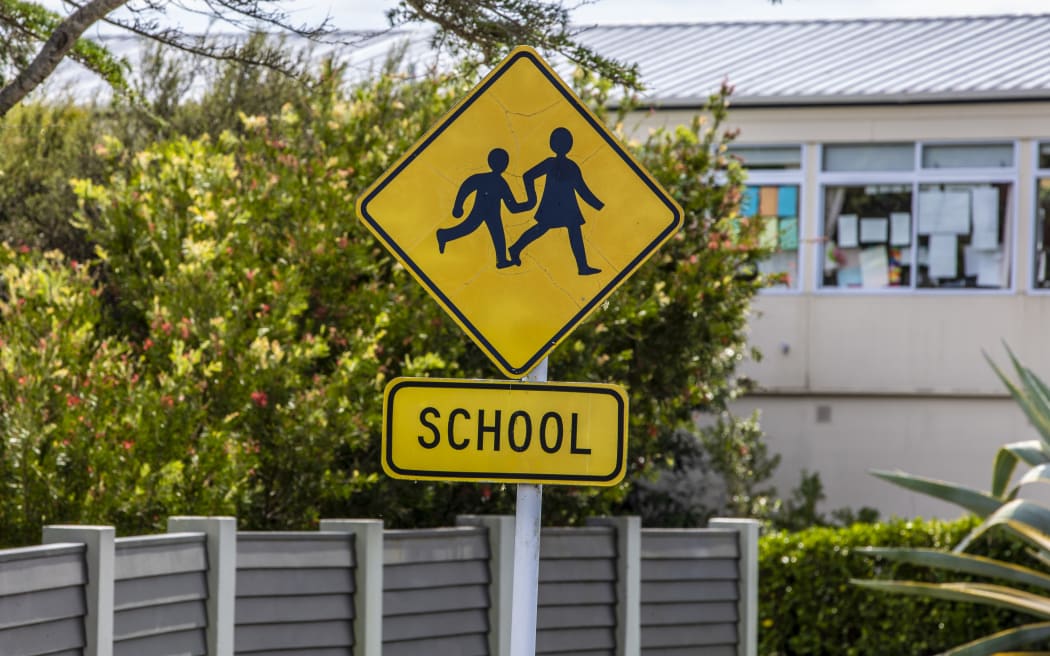Disagreement over how to tackle the education crisis , or if it exists

They say children's performance in key subjects should be taken seriously, but some recent results are due to Covid.
National Party leader Christopher Luxon recently told RNZ student achievement was abysmal, citing low pass rates in trial literacy and numeracy tests, many Year 8s failing to reach curriculum expectations before they moved to secondary school, and international tests that put this country outside the top 10 in reading, maths and science.
Education Hub founder Dr Nina Hood said she was deeply concerned and schools needed to make substantial changes. She said domestic testing did not show declining achievement, but international tests like PISA showed a significant drop over the last 20 years.
"What that data is also showing is that there's been a decline across the board. It's not just students that are in the lower levels of attainment that are dropping; actually we're seeing the proportion of students reaching those top marks in those assessments is also significantly decreasing.
"We absolutely need to be taking it seriously."
Hood said though domestic testing did not show falling achievement, it did show that by the time children reached Year 8 - the final year before secondary school - many were performing below the expected curriculum level.
"By the time students get to Year 8 you've got only 56 percent at or above the curriculum level in reading, 45 percent in maths and down to only 20 percent in science."
Hood said Covid had exacerbated rather than caused some of the recent problems with NCEA and attendance.
"Covid has absolutely contributed to what we're seeing going on. If we're looking at the decline in achievement, I think we were seeing the starts of that before Covid."
University of Auckland associate professor of education Aaron Wilson said most of the decline in international tests happened 10 years ago, and despite the drop in average scores, the number of New Zealand children achieving at the highest level was still above the OECD average.
"For our highest-achieving we're still punching above our weight, but the problem is we have almost twice as many students represented in the lowest band. So the problem isn't really in the middle and it's not in the top - the problem is our inability to shift the dial for students who are achieving in the lowest 20 percent.
"If we address the inequities then we shift the whole dial. Some of the rhetoric that gets bandied around, like it's 'abysmal' across the whole system, really does everybody a disservice."
Wilson said recent declines in attendance and NCEA achievement among school-leavers could be blamed on Covid.
"I don't think we can read anything into the NCEA data."
He said poor pass rates in trial NCEA literacy and numeracy tests in the past two years were partly due to the tests being pilots, and he expected they would improve when the tests were formally introduced.
University of Auckland education professor Gavin Brown was sceptical about the international tests. He put more stock in New Zealand assessments, like the National Monitoring Study of Student Achievement, which measured pupils against this country's curriculum requirements.

University of Auckland associate professor of education Aaron Wilson said most of the decline in international tests happened 10 years ago. Photo: 123RF
"Evidence from the middle 1990s until late 2018, 2020, suggests that in terms of New Zealand standards we have not gotten worse at Year 8, we just look weak compared to international rankings."
Brown said that did not mean change was not needed, wanting to see more explicit teaching to ensure children had a good grounding in reading and maths by the age of 10.
New Zealand Council for Educational Research chief researcher Charles Darr helped run the National Monitoring Study of Student Achievement (NMSSA). He said apart from a few minor variations, it found achievement was not changing.
"We've got a pretty static picture. We certainly haven't got a picture that says improvement, but on the other hand we haven't got a picture showing huge decline."
Darr said recent analysis of 2019 results from Progressive Achievement Tests in maths also showed no change in student performance compared to 10 years earlier.
He said whether the number of children failing to reach the expected curriculum level by the end of their primary school years was a problem depended on whether the curriculum level expected of them was reasonable.
Darr warned against characterising schooling as being in crisis.
"We've got to be very careful about jumping straight into crisis mode because it could result in knee-jerk type reactions, which I don't think have proven helpful."
A recent Ministry of Education summary of large-scale education studies said primary achievement at Year 5 in maths and science was mediocre internationally, and in reading it was lower than most English-speaking countries.
"Achievement decreases over primary schooling. By Year 8 half or more students are not at the expected curriculum level across most learning areas. International measures are also relatively low and in decline over the long-term."
It said New Zealand had one of the largest gaps between the highest and lowest-scoring students, who generally came from disadvantaged backgrounds, and this had not improved over time.
Education researchers are divided over the state of the school system as it comes under increased scrutiny in the run-up to the general election.
They say children's performance in key subjects should be taken seriously, but some recent results are due to Covid.
National Party leader Christopher Luxon recently told RNZ student achievement was abysmal, citing low pass rates in trial literacy and numeracy tests, many Year 8s failing to reach curriculum expectations before they moved to secondary school, and international tests that put this country outside the top 10 in reading, maths and science.
Education Hub founder Dr Nina Hood said she was deeply concerned and schools needed to make substantial changes. She said domestic testing did not show declining achievement, but international tests like PISA showed a significant drop over the last 20 years.
"What that data is also showing is that there's been a decline across the board. It's not just students that are in the lower levels of attainment that are dropping; actually we're seeing the proportion of students reaching those top marks in those assessments is also significantly decreasing.
"We absolutely need to be taking it seriously."
Hood said though domestic testing did not show falling achievement, it did show that by the time children reached Year 8 - the final year before secondary school - many were performing below the expected curriculum level.
"By the time students get to Year 8 you've got only 56 percent at or above the curriculum level in reading, 45 percent in maths and down to only 20 percent in science."
Hood said Covid had exacerbated rather than caused some of the recent problems with NCEA and attendance.
"Covid has absolutely contributed to what we're seeing going on. If we're looking at the decline in achievement, I think we were seeing the starts of that before Covid."
University of Auckland associate professor of education Aaron Wilson said most of the decline in international tests happened 10 years ago, and despite the drop in average scores, the number of New Zealand children achieving at the highest level was still above the OECD average.
"For our highest-achieving we're still punching above our weight, but the problem is we have almost twice as many students represented in the lowest band. So the problem isn't really in the middle and it's not in the top - the problem is our inability to shift the dial for students who are achieving in the lowest 20 percent.
"If we address the inequities then we shift the whole dial. Some of the rhetoric that gets bandied around, like it's 'abysmal' across the whole system, really does everybody a disservice."
Wilson said recent declines in attendance and NCEA achievement among school-leavers could be blamed on Covid.
"I don't think we can read anything into the NCEA data."
He said poor pass rates in trial NCEA literacy and numeracy tests in the past two years were partly due to the tests being pilots, and he expected they would improve when the tests were formally introduced.
University of Auckland education professor Gavin Brown was sceptical about the international tests. He put more stock in New Zealand assessments, like the National Monitoring Study of Student Achievement, which measured pupils against this country's curriculum requirements.

University of Auckland associate professor of education Aaron Wilson said most of the decline in international tests happened 10 years ago. Photo: 123RF
"Evidence from the middle 1990s until late 2018, 2020, suggests that in terms of New Zealand standards we have not gotten worse at Year 8, we just look weak compared to international rankings."
Brown said that did not mean change was not needed, wanting to see more explicit teaching to ensure children had a good grounding in reading and maths by the age of 10.
New Zealand Council for Educational Research chief researcher Charles Darr helped run the National Monitoring Study of Student Achievement (NMSSA). He said apart from a few minor variations, it found achievement was not changing.
"We've got a pretty static picture. We certainly haven't got a picture that says improvement, but on the other hand we haven't got a picture showing huge decline."
Darr said recent analysis of 2019 results from Progressive Achievement Tests in maths also showed no change in student performance compared to 10 years earlier.
He said whether the number of children failing to reach the expected curriculum level by the end of their primary school years was a problem depended on whether the curriculum level expected of them was reasonable.
Darr warned against characterising schooling as being in crisis.
"We've got to be very careful about jumping straight into crisis mode because it could result in knee-jerk type reactions, which I don't think have proven helpful."
A recent Ministry of Education summary of large-scale education studies said primary achievement at Year 5 in maths and science was mediocre internationally, and in reading it was lower than most English-speaking countries.
"Achievement decreases over primary schooling. By Year 8 half or more students are not at the expected curriculum level across most learning areas. International measures are also relatively low and in decline over the long-term."
It said New Zealand had one of the largest gaps between the highest and lowest-scoring students, who generally came from disadvantaged backgrounds, and this had not improved over time.





